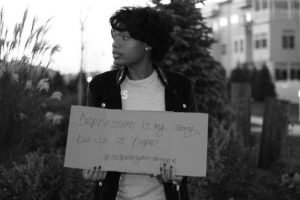Depression is often times misunderstood. This can often cause apprehension surrounding sharing your feelings of depression with others, compounding with the symptoms of depression that a person is already feeling. When preparing to tell someone about your mental illness it’s important to maintain appropriate expectations. The people you tell will likely be concerned and want to help you but at the same time lack the knowledge to understand what it means. Telling those how they can support you can be helpful.

Understanding the Scope of Depression shared some tips on how to tell your loved ones about your depression and your children. Continue reading Tips for Telling Others About Your Depression

















